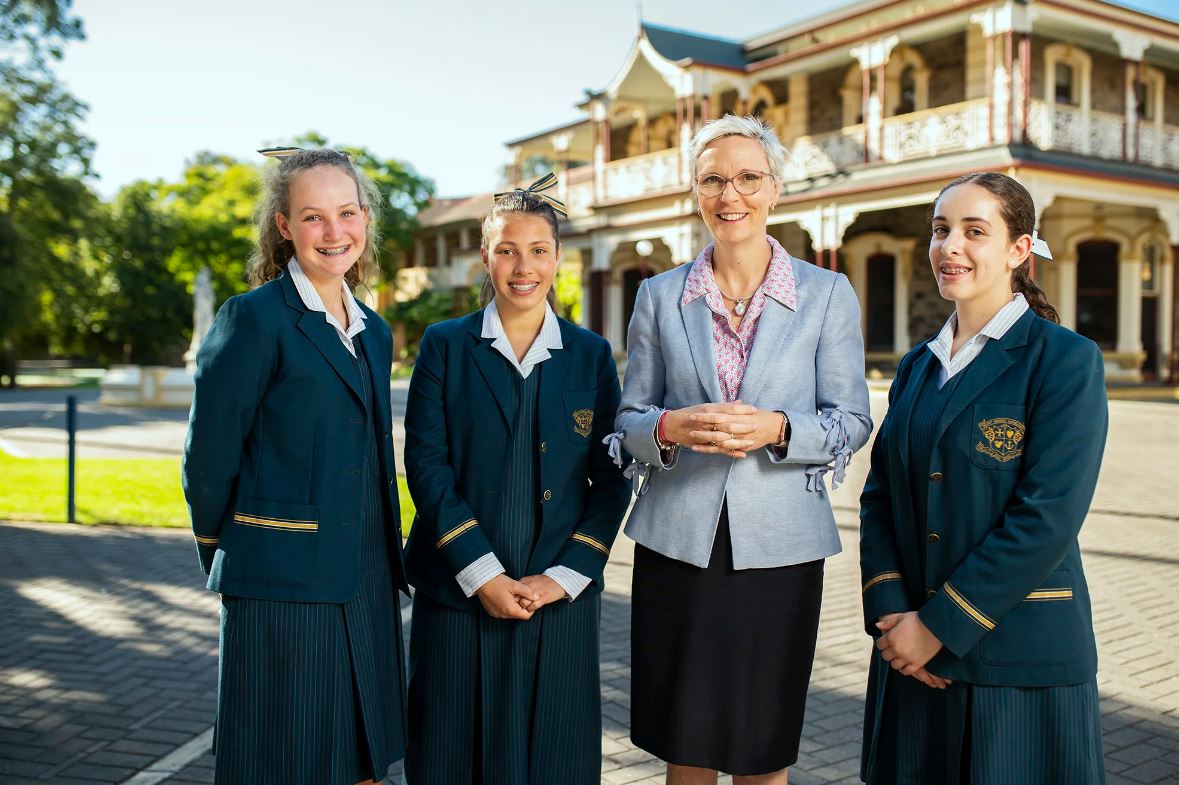
During the transition to remote learning in the first half of 2020, Loreto College Marryatville’s students were fortunate to have not lost any learning days – but this was by no means a lucky break.
As the school’s principal, Dr Nicole Archard recalls, achieving this was a great challenge, but also testament to a team of dedicated teachers who knew that keeping the continuity of schooling for the College’s students was the best thing for the girls’ learning, as well as their wellbeing.
“Our school had already invested in the technological infrastructure needed for online learning. This allowed us to focus our energies elsewhere such as developing the policies and resources required for ensuring the continuity of learning outcomes as well as putting in place wellbeing supports and monitoring systems for the girls and staff,” Dr Archard told The Educator.
Indeed, the College’s focus on supporting its students through tough times has been recognised on the national stage.
Under Dr Archard’s leadership, Loreto has been named one of Australia’s Most Innovative Schools and won trophies for excellence in the 2021 Australian Education Awards for Best Student Wellbeing Program and Department Head of the Year.
But the College is by no means resting on its laurels in 2023. Below, The Educator speaks to Dr Archard about the College’s ongoing efforts to improve and adapt to the evolving educational landscape and ensure the highest quality of learning and wellbeing for students and staff.
TE: What are the most concerning student mental health trends you’re observing as principal?
The past Covid era has seen a rise in mental health concerns across Australia as well as the world. We have moved from the isolation of lockdowns to social re-engagement, and this has had a significant impact not only on our young people, but also many adults. Many of our young people have been left feeling higher levels of stress and anxiety as a result of the range of major global issues that fill their lives everyday through social media and the news; this includes war in the Ukraine, rising interest rates, and the impact of the economic downturn. During periods of lockdown, teenagers in particular turned to social media for engagement, this has now left them unfulfilled and exacerbated issues such as loneliness, inappropriate social interaction with peers, and lower self-worth. There is a need for all schools and families to across the country to work together in order to support our young people through these complexities and assist them to develop positive strategies to combat their growing levels of anxiety and stress.
TE: What does student mental wellbeing looks like at Loreto College Marryatville, and what approach are you taking to strengthening it in 2023?
At Loreto we have implemented our Social, Emotional and Academic Development (SEAD) program. This program is an evidence-based and acknowledges the developmental stages of girls and young women in order to provide a holistic approach to education. The integration of social-emotional skill development in conjunction with academic learning outcomes ensures that all students develop holistically as resilient and confident girls and young women. Thus, the SEAD Program delivers targeted and specific outcomes that address the needs of girls as they develop and grow, making it unique against other type programs. The SEAD Program provides a holistic framework for all areas of the College and whilst it is taught explicitly via two structured timetabled lessons each week it is also embedded in all curriculum and co-curricular areas. The SEAD Program covers concepts such as identity and personal values, leadership and the development of voice, emotions, friendships, and relationships, as well as a focus on growth mindset, strategies for achieving academic success, and other important topics such as online engagement, post-school readiness, and future pathways.
TE: The latest survey into principal health and wellbeing painted a grim picture for the profession. What are some strategies you and your staff employ to keep on top of your own wellbeing?
At Loreto we use a weekly wellbeing check-in for both students and staff through the eiPulse app in order to monitor mental health, school engagement, workflow concerns, and other related issues. The online app interface aligns with familiar technology principles that students and staff can easily engage with, making their weekly check-ins simple and enjoyable. The eiPulse check-in app also presents a pragmatic set of questions developed by ARACY in collaboration with mental health and wellbeing experts allowing for the collection of data for subsequent program development. This data then allows us to develop student and staff wellbeing strategies as well as importantly measure their success.


